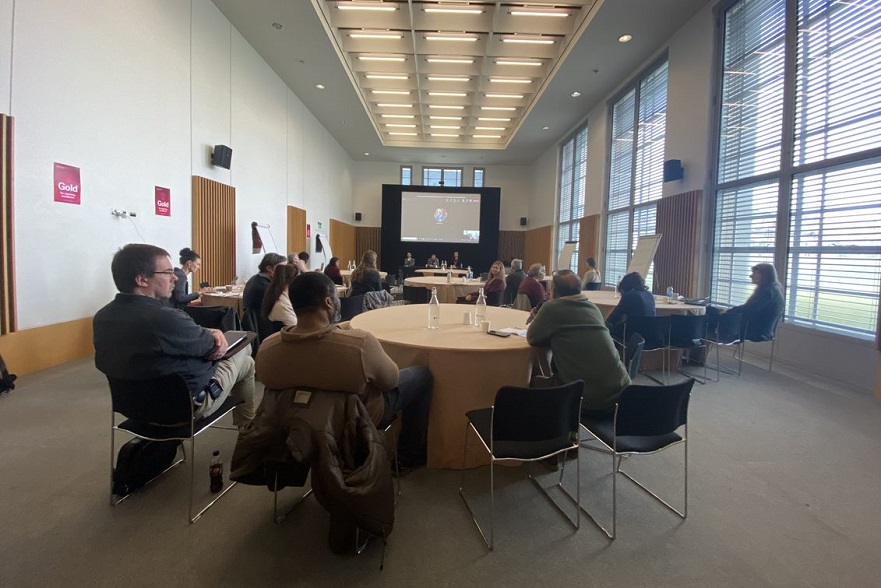Social Vulnerabilities and Climate Change Adaptation: Gender Inequality, Poverty and Exclusion Workshop
Overview of the Social Vulnerabilities and Climate Change Adaptation Workshop.
By Lottie Larner-Reynolds | Published on 18 May 2022

The workshop ‘Social Vulnerabilities and Climate Change Adaptation: Gender inequality, poverty and exclusion’ took place on 28th-29th April 2022 at Nottingham Trent University. The event gathered around 30 scholars from various institutions in the UK and abroad to explore the problems of social exclusion within climate change discussions and policies. This was achieved by considering how climate change adaptation strategies can exacerbate inequalities and other vulnerabilities on the ground. The presented research projects looked at a range of crucial issues that need to be considered for meaningful climate change mitigation and adaptation policies to be formed and implemented effectively. For example, colleagues from the University of Leeds spoke about ‘Key Ethical Challenges in the Development, Provision, and Use of Climate Information and Services’ (the research project is led by Dr Jillian Schacher, Dr Rob Lawlor, Dr Marta Bruno Soares, and Dr Suraje Dessai). Whilst Dr Md. Islam Mofakkarul from the University of Greenwich asked a crucial question: ‘Is Justice Being Served in Global Climate Finance?’. The keynote speaker Professor Gill Allwood (Nottingham Trent University) in her speech titled ‘EU Climate Policy: What is a Just Transition Without Gender Justice?’ addressed not only the problem of a coherent climate policy but her discussion on ‘gender justice’ was evidently applicable to a range of the EU’s other policy agendas. Whilst the workshop participants in their presentations ‘went’ to the different parts of the world (including Europe, the Middle East, Central Asia, South Asia, and the Caribbean), the themes explored and the questions asked were of a global nature: how can we adapt to climate change’s adverse effects without considering the needs of the most vulnerable members of society, or the importance of the context of climate adaptation politics, gender equality, economic deprivation, political restrictions, social stigmas and many other complex issues that affect the way people prepare themselves for the challenges ahead? The workshop also had a number of sessions dedicated to professional development, with half of the sessions dedicated to networking, international collaboration and grant capture.